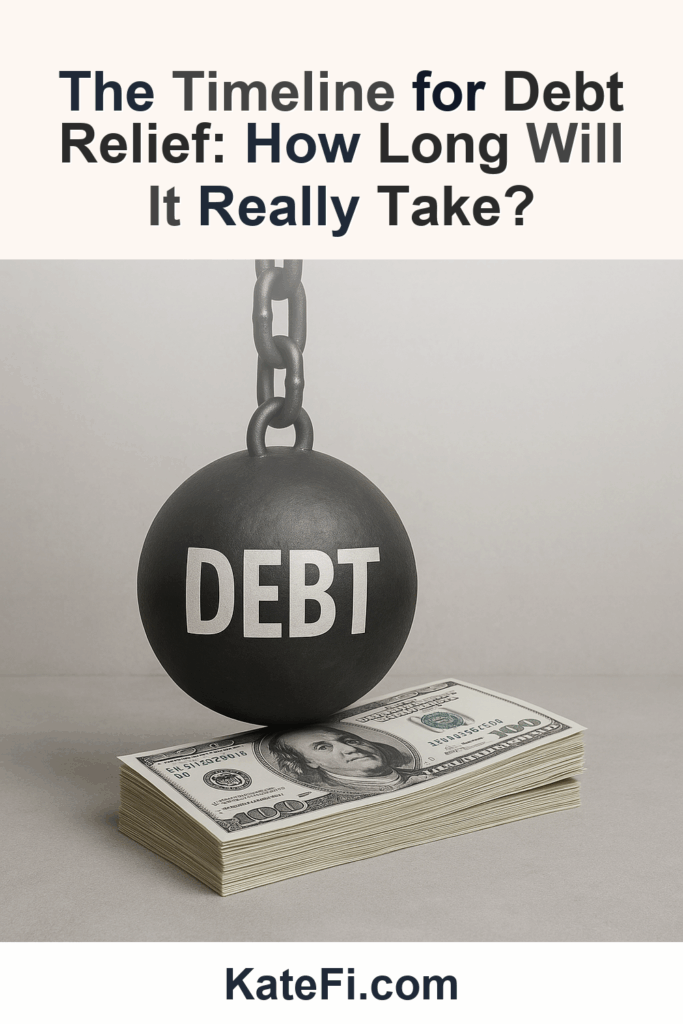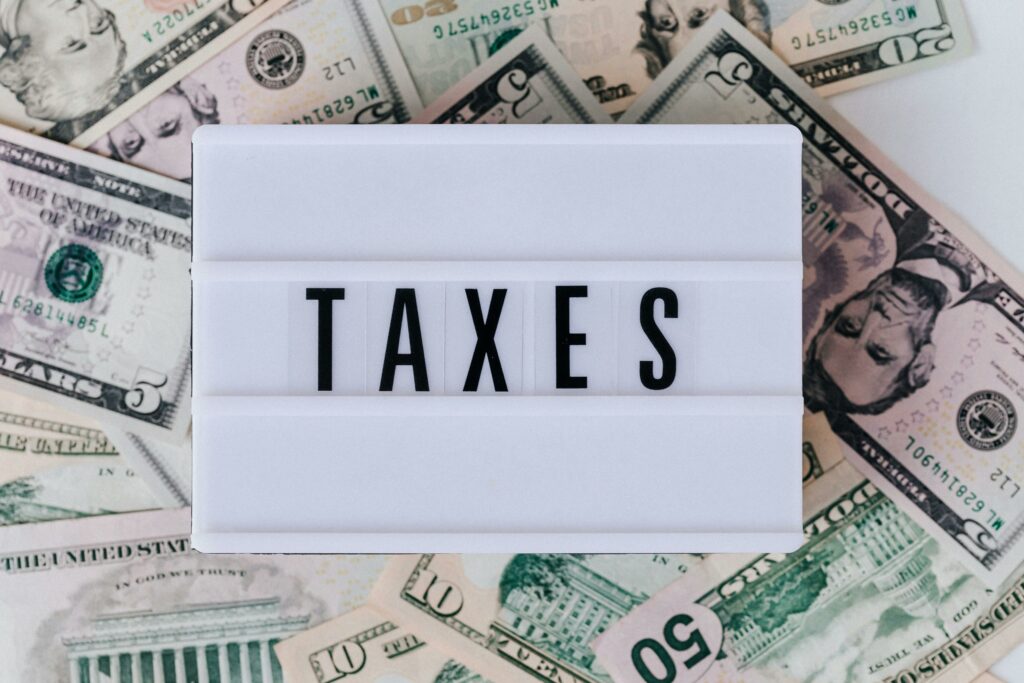8 Mistakes to Avoid When Negotiating with Creditors
Navigating the world of debt relief can feel overwhelming, especially when you’re looking to negotiate with creditors. Whether you’re struggling to make payments or simply want to secure a better deal, there are critical mistakes that can sabotage your efforts. The good news? With the right strategies, you can make meaningful progress in your journey to financial freedom. In this post, we’ll outline eight common pitfalls to avoid during negotiations and offer insights on how to leverage side-income micro-wins to accelerate your debt payoff.
Love our content? Show your support by following us — pretty please!🥺
FOLLOW ON PINTEREST
Hi! I’m Kate, the face behind KateFi.com—a blog all about making life easier and more affordable.
But before we dive in, if you’re seeking personalized advice, getting a free consultation is an excellent first step. Our experts can help you explore options tailored to your situation!
1. Underestimating the Power of Preparation
👉 Start Your Free Debt Relief Review
Not available in IL, KS, OR, TN, UT, WV.
When it comes to negotiating with creditors, preparation is key. Many people walk into these conversations without a clear understanding of their financial situation. Not only should you know your total debt and monthly expenses, but you should also have a payment plan in mind.
Checklist for Preparation:
- List all outstanding debts, including amounts owed and interest rates.
- Assess your monthly budget to determine how much you can realistically pay.
- Gather relevant documents, such as account statements, income sources, and monthly expenses.
By showing up well-prepared, you’ll convey confidence and make it easier for creditors to see you as a serious negotiator.
✅ See If You Qualify for Debt Relief
2. Ignoring Your Credit Report
Before entering negotiations, it’s essential to review your credit report. Understanding your credit score and how your debt levels affect it can empower you during negotiations. If your credit report contains inaccuracies, you may have grounds to dispute them, which can improve your credit score and strengthen your negotiation position.
What to Check:
- Any discrepancies in account balances.
- Accounts that should be marked as “paid” or “settled.”
- New accounts that appear without your knowledge.
You can request a free credit report annually from each of the three major credit bureaus. Armed with this information, you can engage creditors from a position of strength.
3. Making Emotional Decisions
Understand pros/cons of settlement vs consolidation vs DMP for your exact mix of debts.
Not available in IL, KS, OR, TN, UT, WV.
Negotiating with creditors can be stressful, and it’s easy to let emotions guide your decisions. Whether you’re feeling overwhelmed or angry, emotional reactions can lead to poor choices—like agreeing to a payment plan you can’t afford or not negotiating for better terms.
Instead of rushing into decisions:
- Take a moment to breathe and assess your options.
- Think about your long-term financial goals.
- Stay focused on the facts of your financial situation.
Staying calm and rational can help you navigate these discussions more effectively.
4. Failing to Communicate Clearly
What You’ll Learn on the Call
- Estimated timeline and monthly payment range
- How credit may be affected in the short term
- What documents to gather to move faster
Not available in IL, KS, OR, TN, UT, WV.
Effective communication is crucial when negotiating with creditors. Miscommunication can lead to misunderstandings and ineffective agreements. Ensure you are clear about what you can offer and what you’re asking for in return.
Script for Communication:
- “I’m currently facing some financial challenges, but I’m committed to resolving my debt.”
- “Would you be willing to discuss a reduced payment plan that reflects my current budget?”
Always confirm any agreements in writing to avoid future confusion.
5. Accepting the First Offer
Many debtors make the mistake of accepting the first offer presented to them without negotiating further. Creditors often expect you to counter their proposals. Don’t be afraid to ask for more favorable terms.
Negotiation Tactics:
- Offer a lower amount than the creditor suggests to start the negotiation.
- Propose a payment plan that fits your budget, highlighting your commitment to repay.
Having a backup plan, such as showing proof of alternative income sources, can also strengthen your negotiation position.
✅ See If You Qualify for Debt Relief
6. Neglecting to Document Everything
A common mistake during negotiations is failing to document everything. Keep thorough records of all communications with creditors, including emails, phone calls, and agreements. This documentation serves as evidence of your negotiation process and can protect you in case of future disputes.
Documentation Checklist:
- Date and time of communication.
- Names and contact details of representatives.
- Details of the conversation and any agreements made.
Being organized and diligent in documenting interactions can save you headaches later on.
7. Overlooking Side-Income Opportunities
While negotiating with creditors is vital, exploring side-income opportunities can significantly accelerate your debt payoff. Small, manageable projects can lead to “micro-wins” that help chip away at your total debt.
Side-Income Ideas:
- Freelance writing or graphic design.
- Selling unwanted items online.
- Taking on a part-time job or gig work, such as driving for a ride-sharing service.
Every little bit adds up and can enhance your negotiation position, showing creditors that you are actively working to improve your financial situation.
8. Not Seeking Professional Help
Finally, one of the biggest mistakes you can make is to tackle debt negotiations alone without professional guidance. Engaging a debt relief service can provide you with expert advice and support throughout the negotiation process.
At KateFi, our team offers free consultations to help you understand your options. We can help you craft a tailored strategy based on your financial situation.
✅ See If You Qualify for Debt Relief
Understanding Credit Impact
It’s important to acknowledge that entering into debt negotiation can affect your credit score. Depending on the agreements made, you might experience a temporary dip in your score due to missed payments or negotiated settlements. However, with strategic planning, your credit can recover over time as you make payments consistently.
Documents to Gather for a Faster Review:
- Recent credit reports.
- Income documentation (pay stubs, tax returns).
- Details of all debts and current payment status.
By presenting a comprehensive overview of your situation, you can help creditors assess your case more swiftly.
Important: This content is for education only—not legal, tax, or financial advice. Results and eligible programs vary by situation and state. Fees apply if you enroll and complete a program. Debt relief can affect credit; missed payments may lead to collections/lawsuits. Not available in IL, KS, OR, TN, UT, WV.
In conclusion, negotiating with creditors is a crucial step toward achieving financial stability, but it’s essential to navigate this process wisely. By avoiding these eight common mistakes and considering micro-wins through side income, you can pave the way for a smoother negotiation and a faster path to debt relief. If you’re ready to take control of your financial future, remember to get a free consultation with us today! Your journey to financial freedom starts now!






















